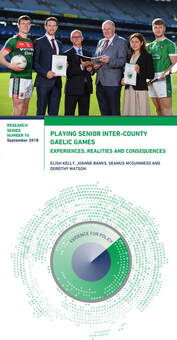
Around the same time, I heard a radio interview with a recently retired player. During his inter-county playing career, the player had captained his county to All-Ireland success. His brother would have been on the same team had he not decided to become a professional Australian rules player. In the radio interview, the player noted how he came to realise that having a professional career outside of sport helped alleviated stress arising from sport. He contrasted this situation with the stress involved for his brother every time he was due for contract renewal.
Recent research in the Journal of Applied Social Psychology might help explain some of the benefits to having a professional career outside of sport. “How stressful is retirement! Antecedents of stress linked to athletes’ career termination” examines the stress associated with retirement of professional athletes and links it to their personality traits. It is not a comparison between professional and amateur athletes. However, the findings are informative. One of the findings is that “if athletes’ passion leads their identities to be not exclusively based on their sportive activities, but it leads to harmoniously integrate these activities with other important life domains, stress linked to ending one's professional career should be significantly reduced and the passage toward the beginning of something else much easier.”
At first, it struck me as odd that of the 420 professional Italian athletes in the study there was no soccer player. Over 30% of the athletes were rugby players and another 22% were involved in Winter Sports. On reflection, the lack of soccer players makes sense. Few of the non-soccer athletes are likely to make enough money during their sporting career to negate the need to find another career. The transition is unlikely to be easy.
The data from the ESRI study shows that it is not easy to combine a time-hungry amateur sporting career and a professional non-sporting career. However, it may make the retirement decision less stressful.
 RSS Feed
RSS Feed